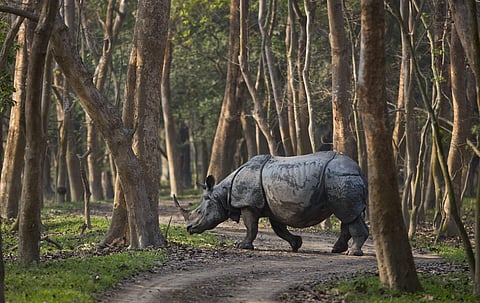

Wildlife tourism on one hand encourages livelihoods and biodiversity but on the other leads to habitat loss, poaching and animal exploitation.
As tourists, here’s what we can do to boost sustainable practices:
No Selfies: Taking selfies with animals in the wild can turn out to be dangerous as people get closer for a better photograph. One needs to maintain a safe distance with animals.
Do Research: Many sanctuaries promise up, close and personal with wild animals. But it is important to note that sanctuaries often capture and drug animals, treat them inhumanely to make them tourist-friendly.
Some of the cruellest animal tourism activities include: riding elephants, crocodile farms, walking with lions, holding sea turtles, watching performing dolphins, dancing monkeys, and charmed snakes, etc. Pick parks where animals are brought for rehabilitation.
Help Local Economy: Visiting parks help promote wildlife tourism and in turn help local people around the forest fringes earn their livelihood.
Visit National Parks: Parks with animals made to do stuff to entertain tourists is increasing unethical treatment towards wild animals, be it elephant rides or swimming with sharks in cages. Rather take to the water on a whale watch or shark tour to see naturally occurring sea life that can wow you without putting you in the water or a safari in a national park to see animals in their natural habitat.
Volunteer in a Wildlife Park: People travelling solely to see animals can get a vacation out of a volunteer trip by working with a sanctuary or conservation. This is the best way to get responsible, hands-on experiences with animals like big cats, elephants, and sea turtles, etc. This will also increase awareness and also leads to better conservational efforts from society as the number of such volunteers increases.
Don’t Feed the Animals: While on a safari or visit to the jungle, do not feed the animals because what is good food for us is not good for animals. This can lead to injuries and spread diseases among wild animals.
Shop Carefully: Don’t get tempted by an antique that is, say, carved ivory tusk or a black coral bracelet etc. Just because an item is for sale doesn’t mean it’s legal to purchase.
Some products such as snake wine, tortoiseshell accessories, shells and coral jewellery, ivory, or furs are made from protected plants or endangered species and can be illegal to export or import. They can also be the products of poaching or mislabelled to entice tourists.